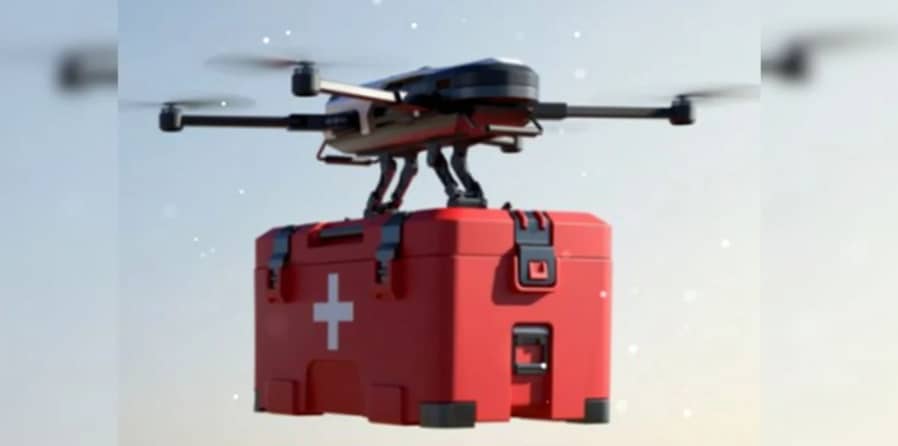On this National Science Day, the marvels of modern science are on full display, transcending the boundaries of imagination and bringing about revolutionary advancements in various fields, including medical science. As the world commemorates the contributions of science and technology to society, a groundbreaking development promises to transform healthcare delivery in remote and inaccessible areas: the utilization of drones for the swift transportation of critical medical supplies.
Gone are the days when geographical barriers posed challenges to the timely delivery of essential medical resources such as blood, vaccines, and life-saving medications. Today, thanks to the relentless pursuit of innovation and technological breakthroughs, drones are poised to revolutionize the landscape of medical logistics, bridging the gap between inaccessible regions and vital healthcare services.
The vision of swift aerial transportation of medical supplies is no longer confined to the realms of science fiction but is rapidly becoming a tangible reality. With the advent of drone technology, medical institutions situated in remote and hard-to-reach areas can now expect the seamless delivery of crucial supplies within minutes, overcoming the limitations posed by rugged terrain and infrastructure deficiencies.
The implications of this transformative innovation are profound, promising to enhance healthcare accessibility and save countless lives, particularly in underserved and marginalized communities. By leveraging drones for medical supply delivery, healthcare providers can circumvent logistical challenges and ensure prompt access to essential resources, thereby mitigating the adverse impact of distance and remoteness on healthcare outcomes.
The integration of drones into the healthcare supply chain represents a paradigm shift, ushering in an era of unprecedented efficiency and effectiveness in medical logistics. Beyond mere convenience, this innovative approach holds the potential to revolutionize emergency response efforts, improve disease surveillance, and bolster public health initiatives in remote regions.
As we celebrate National Science Day and reflect on the remarkable strides made by science and technology, the transformative potential of drone-enabled medical supply delivery serves as a testament to the power of human ingenuity and innovation. By harnessing the capabilities of modern science, we are not only overcoming longstanding challenges but also reshaping the future of healthcare delivery for generations to come.



